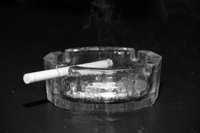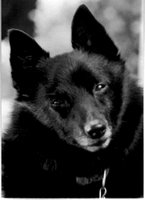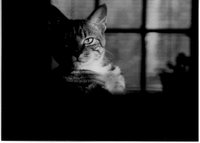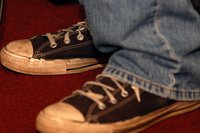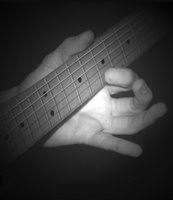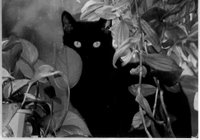Early this morning I read my cousin Linda's story "The Two Wolves in My Heart". Whether it was the imagery or the fact that it felt like she was writing directly to me, I'm not sure, but it's stayed with me all day and I have a feeling it has made a permanent place in my heart.
In college, we read "The Octopus" by Frank Norris. It was a brutal story of the conflict between a greedy, ruthless, corrupt railroad and a community of hard working, self sacrificing, and painfully honest farmers. To my surprise and dismay, the railroad won. In desperation, facing the loss of everything they had, the farmers became corrupt, were exposed, and finally destroyed. Generations of their work was in ruins, their families were shattered and the railroad emerged richer and more powerful than ever. This was not the way of the world I'd been taught and I hated the novel but it's still with me as is the lesson that sometimes evil wins.
It's tempting to think that evil or negativism or sorrow or rage only wins when we allow it. Tempting, but not true. The world is beyond our control. We can change ourselves, our attitudes, perspectives and actions, but not others. We can decide which wolf to feed.
From Linda:
The Two Wolves in My Heart

An American Indian story tells of a grandfather who was talking to his grandson. The grandfather says, "I feel as if I have two wolves fighting in my heart. One wolf is the vengeful, angry, violent one. The other wolf is the loving, compassionate one." The grandson asks, “Which wolf will win the fight in your heart?” And, the grandfather replies, "The one I feed."
Most of the time, I prefer to see myself as willing to get involved to help others. I don’t perceive myself as vengeful, angry or hostile. Yet when I come across aggressive people, like some of the drivers I encounter when I venture into the city, I realize that I also refuse to be bullied.
The other day, I was driving through a city that, many years ago, was quite familiar to me. A lot of the land marks I formerly used to help me navigate are gone now. There are empty lots where I remember buildings and construction has changed the look of the area enough so that I slowed down in an attempt to read street signs. It seemed like a reasonable thing to do. An impatient driver with a very large red truck pulled up closer to the rear bumper of my car than seemed safe to me.
Sensing by his hand motions and reading his lips in my rear view mirror it was clear he was angry at my driving speed. Yet, on the narrow streets he was also unable to pass and I was unwilling to pull over. Instead of speeding up, as the man in the red truck seemed to want, I slowed down. Much to my companions horror I said, “You think this is slow, now try this!”
Now the truth is, I value slowness more and more as I age. It has wonderful benefits to my health as well as my spirit. The cliché about stopping to smell roses is indeed true for me. Several years ago, the story about the two wolves fighting inside of the grandfather inspired me to maintain a regular meditation practice. For meditation one must slow down to be aware of just one moment at a time. I believe that practice feeds the part of me that is loving and compassionate, making it stronger. The vengeful side of me is still there, although less and less these days. And, when it arises, I do not let it win my heart.


